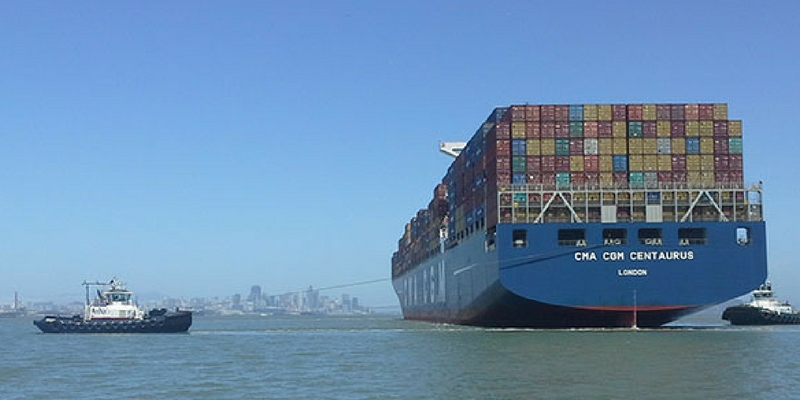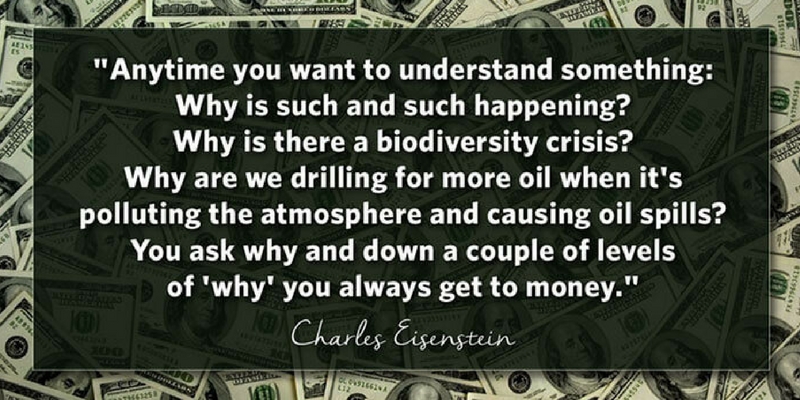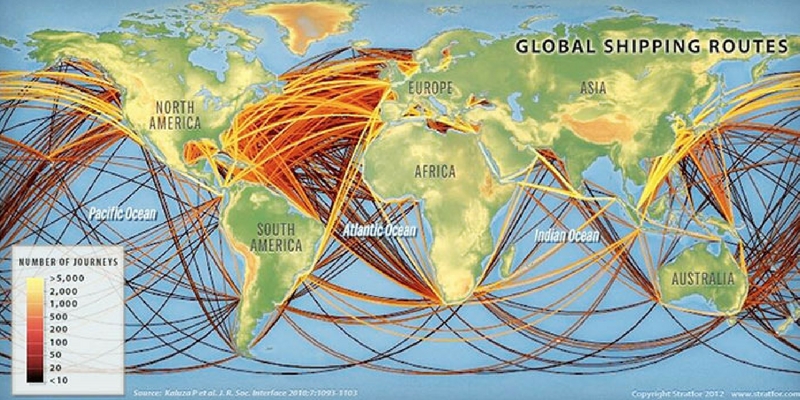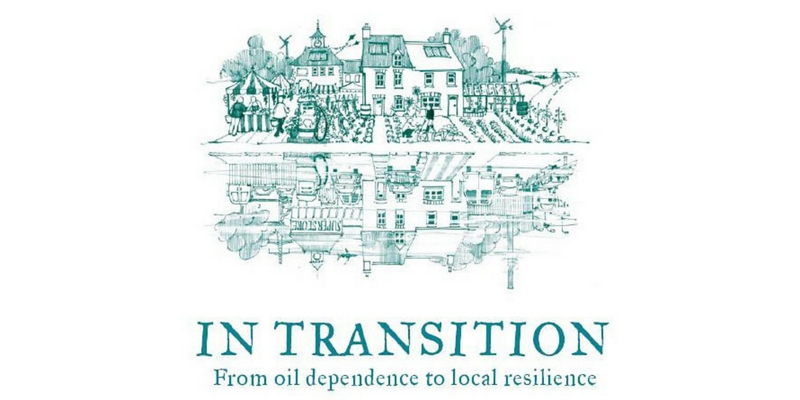When I lived in San Francisco, I often would marvel at the movement of goods through the ports across the bay in Oakland. Full container ships would enter the bay one after another and unload their cargo, which ultimately would be making its way to the many big box stores throughout the country. After a day or two parked in the bay, the ships would head back out across the Pacific Ocean to pick up more goods from the factories in Asia and bring them to the US and other rich countries for consumption. For those living in the bay area (or in any other major port city), this movement of goods seems very normal and has become simply a fact of life.

Do you ever wonder why we actually ship stuff all around the world?
Shipping Stuff Half Way Around The World Isn’t Good Economics, It’s A Waste Of Energy
I always wondered why human beings are engaging in a process to manufacture goods thousands of miles away from where they would ultimately be consumed. Was it because it was not possible to assemble them locally? No. Was it because the materials used in the production of those goods could not be found in the United States? Perhaps in a few cases this is true. But that isn’t the main reason why this practice continues.
There is a simple reason why corporations have engaged in this strategy. It’s cheaper. Not in terms of energy or physical resources used, but in terms of money. It is “cheaper” from a financial perspective to use massive quantities of physical resources to move materials all around the world, find people willing to work for lower wages, and visiting multiple factories in different locations to assemble various components of a final product before it was ultimately shipped back across the ocean and trucked to your local shopping mall.
This alone should point to how detached our economics has become from the real world. How could it actually be financially cheaper to use more physical resources to manufacture and deliver a product to market?
Part of the problem is that we do not pay the full cost of using fossil fuels, which make globalized trade possible. Traditional oil has an energy return on investment of 25:1 or more. That means for every unit of energy used in extracting the oil, twenty-five units of energy are available for use, making the building and operating of massive container ships relatively cheap. Because the costs to the environment in the form of pollution, climate change, and species extinction are not incorporated into the costs of using fossil fuels, it has led to oil companies becoming the most profitable businesses on earth. And they use those enormous profits to undermine the government whose job it is under traditional capitalist theory to correct market failures.

Globalization isn’t ‘cheaper’, it just hides its true costs.
A Faulty Accounting System
Globalized trade is only made possible because our economic system does not account for the true costs of using fossil fuels. If we did, the fuels that are used to power globalized trade would reflect their true cost and the practice would end overnight. How many more destructive practices would change if the industries associated could no longer get away with exporting costs onto society, the environment, and other wild species?
The truth is, from an energy perspective, it is far more expensive to ship cars from Japan, iPhones from China, and clothes from Malaysia than it is to produce them locally. Corporations are taking advantage of currency exchanges to find the cheapest labor. Because the cost of fuel to facilitate this movement of goods is so artificially cheap, labor costs become the dominant factor in relocating manufacturing facilities all around the globe. In this world of perverse economic incentives, somehow it makes sense to a CEO to close down a manufacturing plant in Detroit and move it to China to take advantage of the pinnacle of market failures – our use of fossil fuels.
Money isn’t a real physical commodity like fossil fuels. It primarily exists as bits in computers. All money that exists today is fiat, a simple accounting tool that measures how much we are able to extract from nature and turn into products and services for human consumption. The faulty assumption the modern economy is built on says that the more we consume in this economy, the better off we will all be, but there are obviously limits. Eating as much food as possible is not good for you. Continued physical exertion without rest is not good for you. The logic that maximizing GDP, which is just the summation of all goods and services exchanged for money, will somehow lead to a better world for all is so obviously flawed, yet it continues to be held in high regard by almost every mainstream economist.

Money isn’t real, but Energy is.
Globalization Is Unsustainable
This practice is obviously unsustainable. If we do not correct our market failures, then Mother Nature will do it for us in the form of severe droughts, heat waves, floods, and extreme weather. Given the current state of how money influences politics, there is no government or corporation that will be able to deal with this issue. Ultimately, it is up to each of us to change how we live, to reduce our demand for resources by ceasing to be referred to as “consumers”, and only buy things we need from locally-produced sources while recycling or upcycling the rest.
As the people in Greece are now realizing, access to global markets can end abruptly, leaving people with the inability to meet their needs. However, there is a growing movement that is aiming to reinvent life and economies in a post-oil world. It’s called the transition movement. It centers around building thriving communities and local supply chains where people are able to meet their needs without consuming goods produced far away from home. These communities involve everyday people working together to build a resilient economy that is far more egalitarian in nature. People can meet their needs by establishing their own local currencies bypassing the centralized global currencies that make globalized trade possible.
I believe in the resiliency of life. I believe that, when hard-pressed, people will find a way to meet their needs. That’s all an economy is after all – a system for allocating resources to needs – and there are far more alternatives than the hierarchical systems of capitalism and socialism that have dominated the world for centuries.

One solution to globalization is transition.
This article, Globalization Makes No Sense is free and open source. You have permission to republish this article under a Creative Commons license with attribution to Chris Agnos and ChrisAgnos.com. (Just copy and paste this text with links at the bottom of your page.)